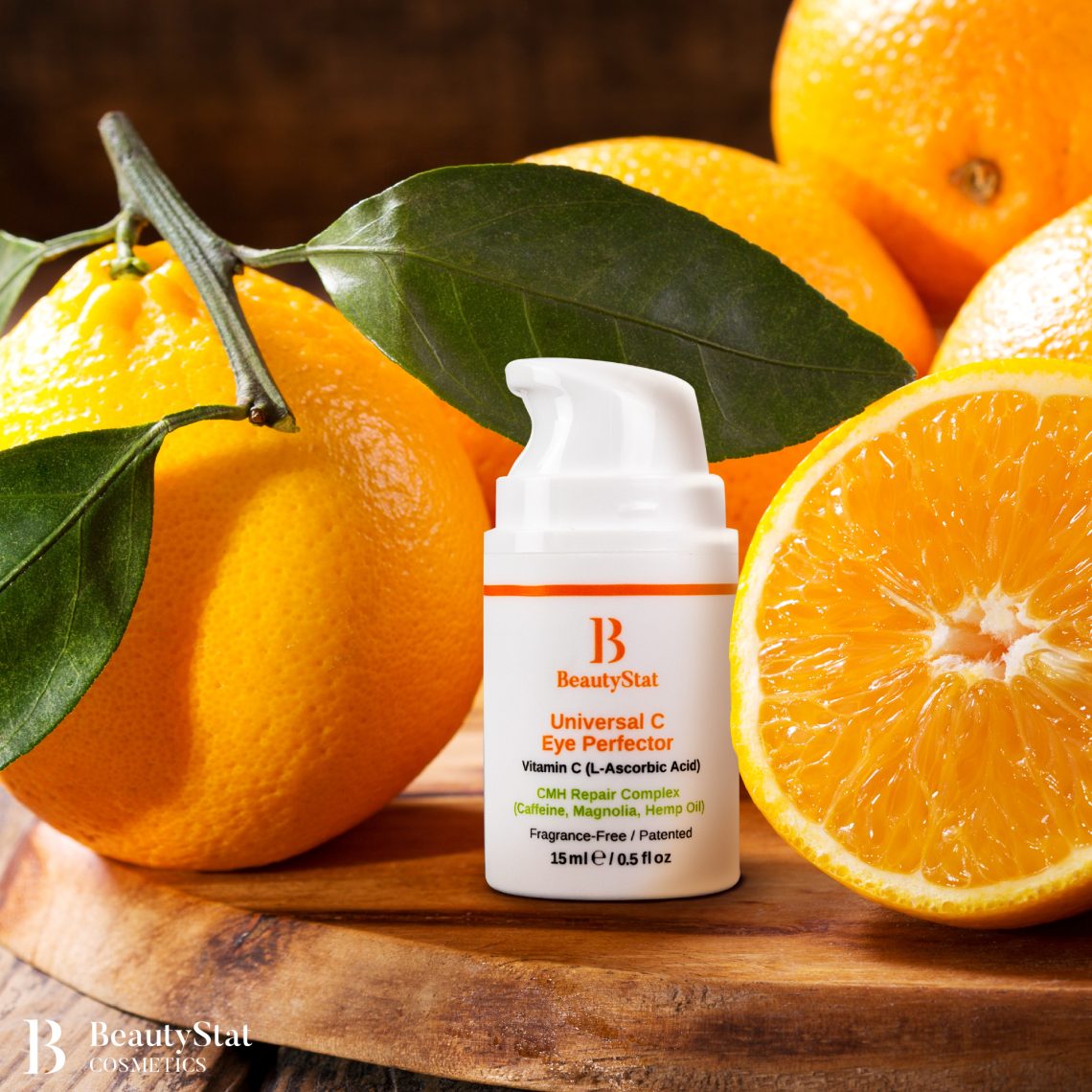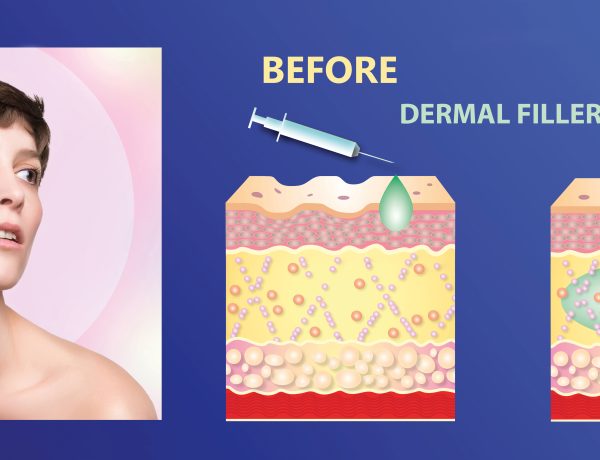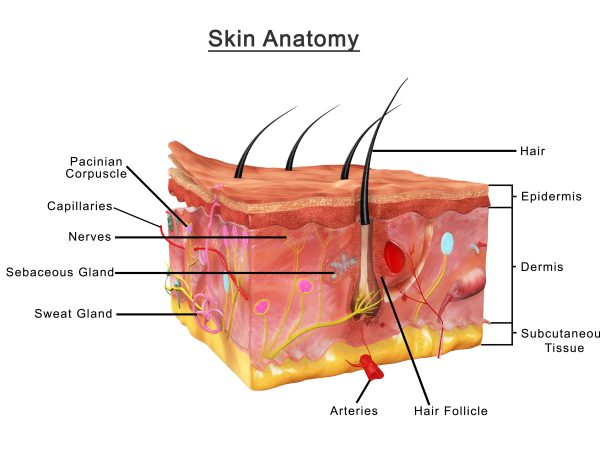Face serums for skincare have become popular among the Instagram and TikTok crowd. Packaged in pretty glass bottles with droppers, face serums are as fun to use as they are helpful to your skin. However, with so many different serum options out there, it can be quite overwhelming to narrow down your options.
One particular face serum on the rise is vitamin C serum, which is known for its anti-aging properties. Vitamin C leaves skin brighter looking while also reducing the appearance of wrinkles and hyperpigmentation for an even skin tone.
Though vitamin C serum is recommended by many, it is important to pick a face serum that will address your specific skin needs. Read on to learn more about what vitamin C serum does, potential side effects, and how to add it to your skincare routine.
What Does Vitamin C Serum Do?
Vitamin C is a powerful antioxidant that helps stimulate collagen production in your skin. Although you can get vitamin C from the food you eat, the best and most direct way to give your skin the benefits of vitamin C is with direct application, such as a face serum.
Vitamin C serum is most known for anti-aging but it has other benefits as well. Here’s a short list of what vitamin C can do for your skin:
- Reduces hyperpigmentation
- Improves appearance of acne scars
- Smooths fine lines and wrinkles
Protects against sun damage
This particular face serum has many benefits for multiple skin types, which makes it a great addition to any skincare routine.
Reduces Hyperpigmentation
Hyperpigmentation happens when acne causes your skin to develop darker spots in affected areas. It can also be caused by UV rays and skin injuries. Vitamin C reduces this without changing your skin color. It also helps brighten your skin tone, achieving an overall effect of smoother skin tone.
Improves the Appearance of Acne Scars
If your skin does not heal properly after an acne breakout, acne scars may develop. Applying vitamin C to the affected area helps promote collagen production, which promotes healthy skin and helps build your skin structure. Essentially, it helps acne wounds heal faster.
Smooths Fine Lines and Wrinkles
Vitamin C serum plumps and hydrates skin, which helps reduce the appearance of fine lines and wrinkles. It can also help with reducing the appearance of under-eye circles by decreasing the discoloration of dark circles. BeautyStat Universal Eye Perfector will help to take years off your face and diminish dark circles, crow’s feet, and puffiness.
Protects Against Sun Damage
Exposure to UV irradiation is often associated with a lack of vitamin C in your skin. The antioxidants in vitamin C serum protect skin cells and will render the molecules that cause sun damage harmless.
Potential Side Effects
Any skincare product has the potential to cause side effects. Although vitamin C serum is not known for causing irritation, it is important to do a patch test before using the serum to see how your skin will react.
Fortunately, vitamin C serum is usually safe to use and is safe for many skin types. However, if you have particularly sensitive and dry skin, this serum might be more likely to cause irritation. Check out this Beautystat Review to learn more.
Adding Vitamin C Serum To Your Skincare Routine
If you decide to use vitamin C serum, be sure to apply it after your cleanser and toner but before your moisturizer. Typically, this serum should be applied once or twice a day as needed.
It is safe to use vitamin C serum with other skincare products, but certain products such as niacinamide may make your vitamin C serum less effective.
Conclusion
Although it is known for its anti-aging properties, vitamin C serum can also help reduce hyperpigmentation and appearance of acne scars, as well as protect your skin from sun damage. It is a multipurpose serum that is safe for many skin types, making it a good choice for many skincare routines. If you are looking to add serums to your skincare, BeautyStat vitamin C might be a good choice for you.
Read more beauty and skincare articles at ClichéMag.com
Images provided by Flickr, Unsplash, Pexels, Pixabay & Creative Commons





